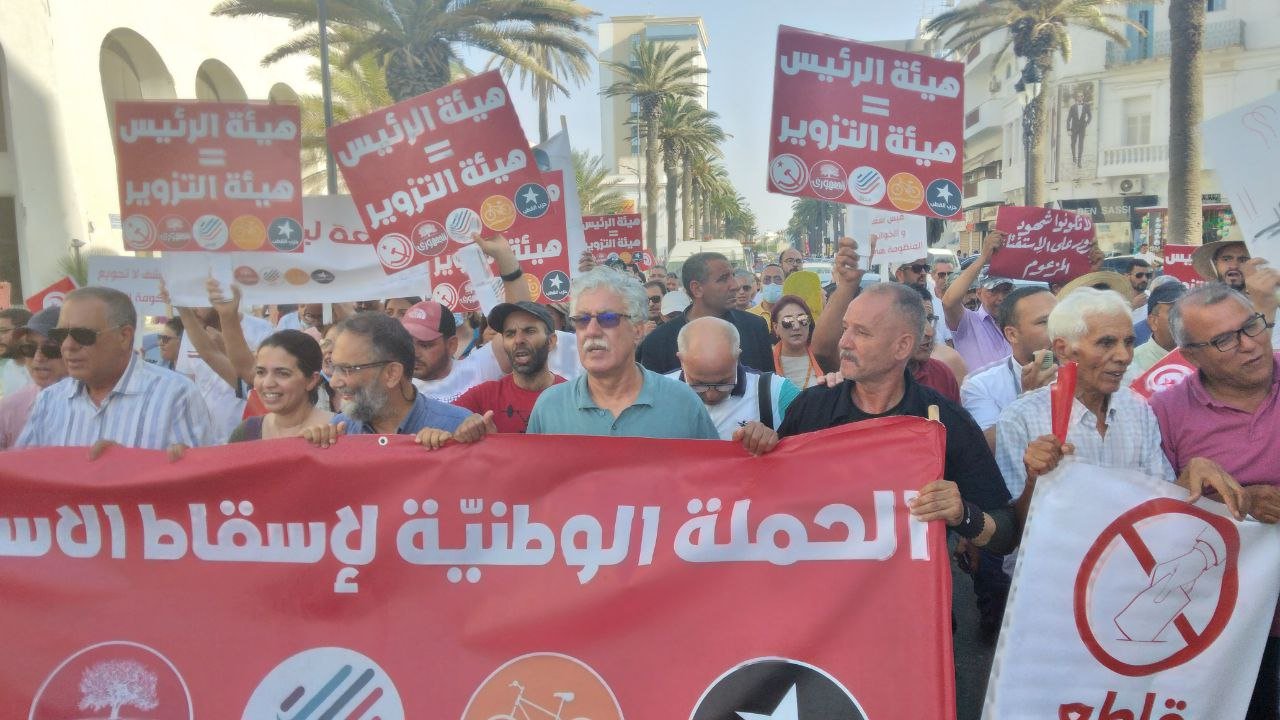After working with a group of hand-picked advisors and writers, Tunisian President Kais Saied proposed a new draft constitution on Thursday, June 30, ahead of the national referendum to be held on July 25. The move has faced criticism from political players representing workers’ voices in Tunisia, with numerous parties calling for a boycott of the upcoming referendum. The new constitution is part of a larger political roadmap established by Saied, who has come under fire for his allegedly anti-democratic measures and power-consolidation efforts. On July 25, 2021, Saied dismissed the sitting Prime Minister and suspended the parliament in what has been described as a “constitutional coup”.
The draft constitution, which has not been fully released to the public, provides increased power to the president, and decenters the role of the parliament and judiciary. The constitution would make the president responsible for budgets, treaties, and laws; the president would also be able to dissolve the parliament and select ministers. Written by a group of panelists chosen by Saied himself, the draft includes limited public engagement. The New York Times reported that “less than 10 percent” of eligible citizens took part in an online survey circulated by the government to gather public opinion.
A number of Tunisian political parties have continued to call for a boycott of the referendum, amongst them the Workers’ Party of Tunisia, Republican Party, Free Destourian Party, Democratic Current, and Ennahda. Last month, Workers’ Party President Hamma Hammami criticized the legitimacy of the referendum, stating that only Saied’s supporters would participate. Worker-centric parties and the Tunisian General Labour Union (UGTT) refused participation in the national dialogue proposed by Saied to draft the document. The proposed constitution has also drawn backlash from other dissenting parties like the Islamist Ennahda party, which was angered by the draft’s removal of the mention of lslam as Tunisia’s state religion.
Following the release of the draft, Hammami referred to the new responsibilities granted by the draft constitution to the president as “imperial powers,” paving the way for “a new authoritarian rule.” He condemned Saied’s actions as “a coup against the Tunisian revolution and its constitutional gains.” The current Tunisian constitution, formulated in 2014, was a product of two years of debate and compromises across the political spectrum, following the popular revolution 2011.
Saied and his supporters have claimed that the ruling classes in the country post 2011 popular uprising are inefficient and corrupt and his measures are intended to bring much needed correction in the country’s political system. In a “letter to the people ” released on the official Facebook page of the President on Tuesday, Saied defended the draft constitution claiming that it “stems from the principles of the Tunisian revolution and the rectification process”.
Hammami went on to say that Saied’s actions represented deep-state interests in Tunisia, and called for the downfall of the referendum. The July referendum has no minimum participation requirement to be considered valid, and Saied maintains control over the election authority. Hammami predicts that the proposed constitution will be implemented regardless of its outcome. In the past, he has described the referendum as a source of “false legitimacy for decisions that have already been made.”
The head of the UGTT reportedly warned about the threats that the new draft constitution posed to Tunisia’s democracy. However, the union did not echo calls to boycott the referendum, instead saying that union members would be able to make their own choice. In the past months, the UGTT has led recurring strikes and protests against Saied’s economic policies, including plans to cut subsidies and public wage bills in order to gain eligibility for a loan from the International Monetary Fund.
Alongside the political conditions, Tunisia is witnessing a worsening state of economic turmoil, and the past few years have seen increased frustration amongst labor and social movements, who have been deeply dissatisfied by the government’s role in addressing these challenges.





